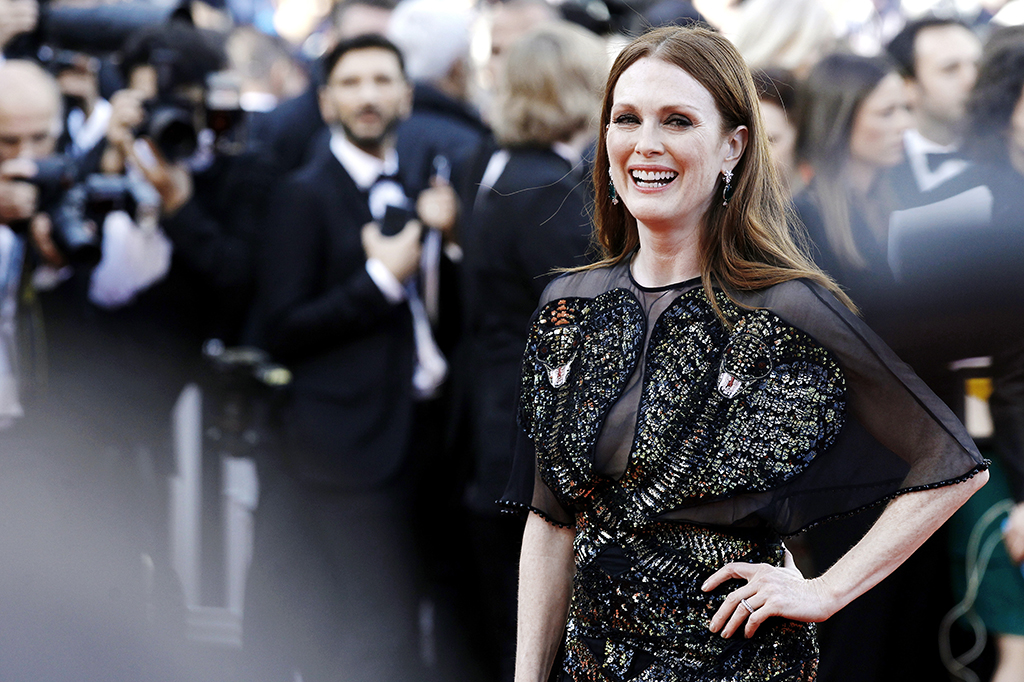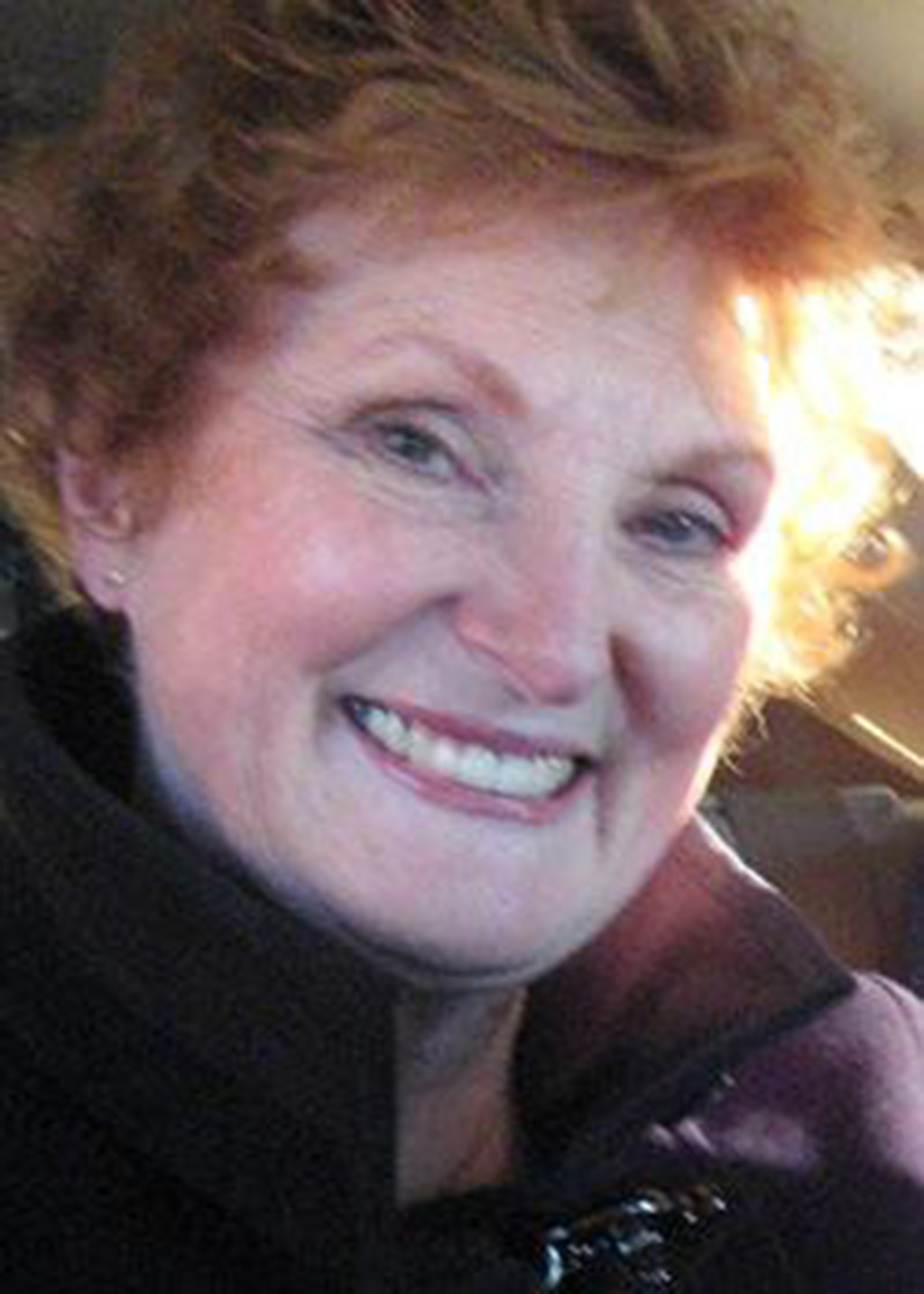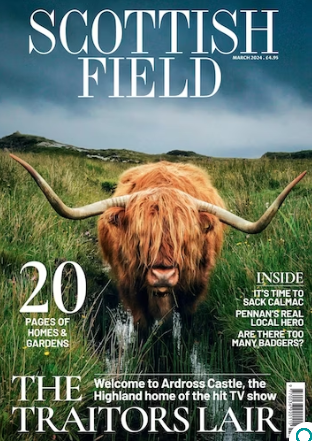
Julianne Moore’s pride in her strong Scottish roots
Most would never have been aware of Oscar-winning actress Julianne Moore’s Scottish heritage; a New York resident with that all-American pearly white smile, why would you think any differently?
Yet it is also hard to miss that auburn hair and alabaster skin that glows across her sharp cheekbones. With close scrutiny, it is easy to see that Scots blood flows through her veins.
Moore was born in North Carolina to an American father who was a colonel in the army, and a Scottish mother, Anne Love Smith.
Raised in the States, Moore was never allowed to forget the origins of her mane of ginger hair. Her psychologist mother had moved to the US aged just ten, yet her strong sense of pride in her hometown of Greenock did not fade easily.
In the 1960s there was no possibility of gaining dual-citizenship and marriage forced Love Smith into renouncing her British citizenship and the Saltire in favour of the Stars and Stripes.
Despite being just seven years old when her mother was finally forced to take the plunge and make the transition, Moore remembers the momentous day vividly. ‘I’ll never forget, it broke my heart,’ she says of the time when her mother drove home from the citizenship test crying tears of sorrow at the loss of her identity, while simultaneously clutching a small American flag.
It is obvious from Moore’s stories of her mother that her Scottish heritage was very much present in her childhood, not least in her mother’s constant exhortations to ‘remember, you are not an American’.
Even were it not for her mother’s constant reminders of her otherness, it is no surprise that Moore felt like a foreigner in her own homeland throughout her childhood, given that before the age of 18 her family had moved across the country 23 times until finally moving to Germany for Moore’s last year of high school.

Julianne Moore won best actress in a leading role at the Oscars for Still Alice in 2015
Those frequent changes of school and home made it harder to form friendships and led to an ever-present feeling of alienation that was exacerbated by her Celtic complexion and hair.
‘I just hated my freckles,’ she says. ‘You wanted to have skin like everybody else’s, not pale and freckly. Kids would say things like “Are you dirty?” I didn’t like not being able to go to the beach and get a tan.’
Perhaps because Moore is now widely reckoned to be one of the most beautiful women in the world, she has become more comfortable in her own skin and has even come to love her red hair. ‘I still don’t like my freckles, but I have other things to worry about,’ she laughs. ‘I care about it less.’
It was partly the process of coming to terms with her appearance that prompted her to branch out from her successful acting career into children’s books with her New York Times bestseller Freckleface Strawberry. Inspired by her hated childhood nickname, it tells the story of a girl who wanted to get rid of her freckles but, much like Moore, in the end accepts the unique appeal of her looks.
Her literary career did not stop there; following the death of her mother in 2009, Moore released a second children’s book, My Mother is a Foreigner, But Not To Me, that builds upon her childhood experiences of growing up in a multinational household.
Moore remembers other children questioning why her mother ‘talked funny’ and ‘why she had a kilt’, but claims that, ‘to me, everything about my mother was completely normal and familiar to me, even her own sense of being foreign’.
Moore’s experience, she hoped, would offer advice to other young children in the same situation, but she also candidly admits that a large factor in writing the book was to cope with her own grief at the passing of her mother aged just 68. Moore says that she and her mother were extremely close, and that ‘I loved her more than I can articulate’.
So strong was this bond between them that after her mother’s death Moore pursued an application for a dual-citizenship between Britain and the US to honour her mother’s Scottish roots. As soon as the laws changed and allowed this, Moore was eager to work through the paperwork. ‘I took a little test and swore allegiance to the Queen,’ she says, claiming that the experience was ‘weird’ but that she ‘wanted to do this for [her mother]. She would have loved it.’

Julianne Moore’s beloved Scottish mother, Anne Love Smith, who died in 2009
Moore’s claims that she ‘lo-o-ves tartan and porridge is not bad’ may be about as convincing as her Scottish accent, which she admits is terrible, yet they are a moving testimony to a mother ‘who identified 100% as a Scot’.
While Moore’s mother coaxed her son and daughter to ‘absorb it [Scottishness] into our identities’, the actress is now making a conscious effort to reconnect with her heritage. Recently her Scottish connections have been becoming more and more apparent with frequent questioning in interviews over the past few years concerning her opinion on the past referendum (‘pretty interesting’), an offer to be the face of Scottish cashmere company Hawick Knitwear (‘well I do love cashmere!’) and also an invitation to be chieftain of Gourock Highland Games (no comment).
Moore said that although she hasn’t visited Scotland since before her mother died, when she does, ‘I feel my roots: there’s this subliminal sense of belonging and relating to the people.’
It is obvious in all that Moore does that she is fiercely proud of her mixed identity, despite the confusion it caused in her youth. She is an American – she lives there, her husband and her children are American – but Scotland still remains firmly in her heart, along with the memory of her mother.
If anyone was in any doubt how important her Caledonian heritage is to Moore, the parting words of her acceptance speech when she picked up her BAFTA for Best Actress in her leading role in Still Alice attest to the central role her Scottishness plays in her life. ‘Finally, to the five Scottish women who poured love into me, my great aunts May, Mary and Cissy, my grandmother Flora and my mother Anne, this is for you,’ she said.
This feature was originally published in 2016.
TAGS

